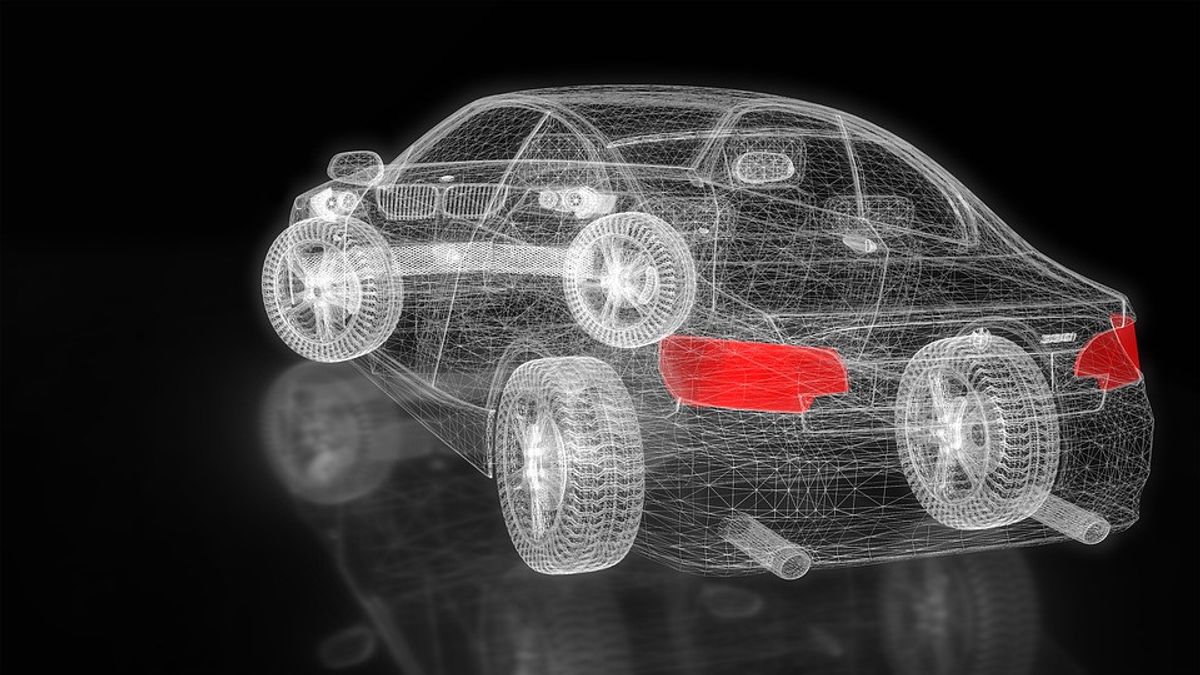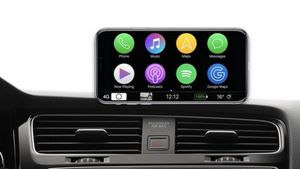JAKARTA – Car companies in Europe and the United States are now competing to dominate the era of connected cars and your vehicle data. The data will be able to store user habits in driving and wherever they go, bring their vehicle. user privacy is now very minimal!
The race enters a pivotal phase as EU regulators seek to finalize the world's first legislation for a follow-up industry around web-enabled vehicles. This rule is like pitting an automaker against a coalition of insurance companies, leasing companies, and repair shops.
A European Commission source said EU executives should launch industry consultations on in-vehicle data this week which could lead to new legislation later this year. This is the first law of its kind, globally.
Many companies view data as the “gold of the new world”, although to some it is more like air or water.
"If you don't have access to data in the future, you will end up being blackmailed," Tim Albertsen, CEO of ALD, the car rental division of Societe Generale, which owns millions of vehicles, told Reuters.
"You won't be efficient, you won't have the right service, you can't operate at the end of the day," he added.
Auto manufacturers, who maintain their gatekeeper role in accessing data from their vehicles, have rejected specific regulations for in-vehicle data, saying protecting consumers is paramount.
"The European auto industry is committed to providing access to data generated by the vehicles it manufactures," said a spokesman for the European Association of Automobile Manufacturers (ACEA). "However, uncontrolled access to in-vehicle data poses a major security, (cyber) security, data protection, and privacy threat."
But companies opposing them say limiting or charging unfair amounts they deem for access to in-vehicle data could kill competition for automakers who already operate their own leasing companies, car subscription services, and repair shops.
In some cases, they say automakers have restricted access to vehicle data and charged independent repair shops more for such access.
“Manufacturers are in direct contact with vehicles, so they get all the data,” says Sylvia Gotzen, CEO of the International Federation of Automotive Aftermarket Distributors, or FIGIEFA, which is part of an alliance of repair shops and parts makers that employs 3.5 million people in Europe.
"They got a full 'buffet' and all we got was crumbs," he said.
Vehicle manufacturers have big plans for data. Through data, they can know where the car is taken by the user, and do anything with the car, starting from the music they hear or what they see during the trip. This data makes car owners seem to lose privacy.
For example, Stellantis, the No. 4 world, expects to generate 20 billion euros (IDR 321 trillion) per year by 2030 from software products and subscription services. Such offerings are also at the heart of General Motors' plan to double annual revenue to around 280 billion (IDR 4 quadrillion).
Volkswagen says data is a "primary source of value creation and innovation". They added that the customer has "complete control" over it because VW regards vehicle safety and customer sovereignty as its main focus.
In contrast, BMW rejects the notion that it withholds customer data. The German company says it can share nearly 100 data points with third parties if drivers request it and can provide more if the company proves a real business need for them and a willingness to take responsibility for cybersecurity risks.
Auto supply groups such as FIGIEFA say that automakers can access the thousands of data points owned by their production cars.
A BMW spokesman said the automaker wants all parties to sit down with mediators such as the European Commission and finalize a list of data points that is acceptable to everyone.
Stellantis CEO Carlos Tavares told reporters on Friday, March 11, that the automaker is collecting data, which costs money, and therefore needs to be paid for it. He cites, as an example, data that Stellantis sells to cities to measure how often anti-lock braking systems work at intersections and gauge which ones are the most dangerous.
"It's not just about collecting data, it's also about processing data in a way that will create value for someone who is willing to pay for it," said Tavares.
But other companies in the automotive ecosystem, such as ALD, say they want the EU to ensure a level playing field.
ALD, in the process of buying rival LeasePlan from the Netherlands to provide a combined fleet of 3.5 million vehicles, has a car-sharing platform that needs to run diagnostics, read the odometer, check the fuel gauge, and switch cars between users.
It also offers an insurance product that lowers your premium based on good driving behavior and monitors how you accelerate and brake.
"Access to data is critical to us to provide the services we do today," said CEO, Albertsen.
To extract car data, ALD installs a wireless "dongle" into the vehicle that sends information to a self-developed platform that pays US startup Vinli to operate. “Automakers running similar services get that data firsthand, putting ALD at a competitive disadvantage,” Albertsen said.
Stellantis, for example, offers car-sharing and rental services through its Free2Move unit. Volkswagen could take over the rental company Europcar to take advantage of car-sharing and subscription services.
Now, most of the major automakers have their own rental units, such as the BMW Alphabet and Mercedes-Benz Athlon.
ALD's Albertsen says major fleet customers are willing to pay for the data but he wants regulations to ensure ALD car-sharing units pay the same as, for example, Stellantis which charges its own Free2Move division.
SEE ALSO:
Insurance companies and auto repair shops say it's very important for the EU to let drivers choose who accesses their vehicle data.
"There's a need to regulate this, because you can't leave this in the hands of automakers," said Nicolas Jeanmart, head of private and general insurance at the European Insurance industry group. "Every driver should decide what they want to do with their data."
FIGIEFA's Gotzen said that will allow car owners to connect their preferred repair shop to their car and run remote diagnostics if they encounter a car problem, rather than relying solely on the manufacturer's recommendations.
"All of this is technically possible now, but we are stuck because car manufacturers are preventing us from doing this," he said.
He said FIGIEFA members are willing to adopt automakers' cybersecurity processes and requirements, but adding cybersecurity could be an excuse for automakers to restrict access.
Richard Knubben, deputy director-general of Leaseurope, which represents European car leasing and rental companies, said the longer the EU regulates car data, the more independent repair shops are at risk of going out of business because they don't have access to it.
"By the time we get legislation, we may already be stuck with an imbalance that we can no longer fix," Knubben said.
The English, Chinese, Japanese, Arabic, and French versions are automatically generated by the AI. So there may still be inaccuracies in translating, please always see Indonesian as our main language. (system supported by DigitalSiber.id)















